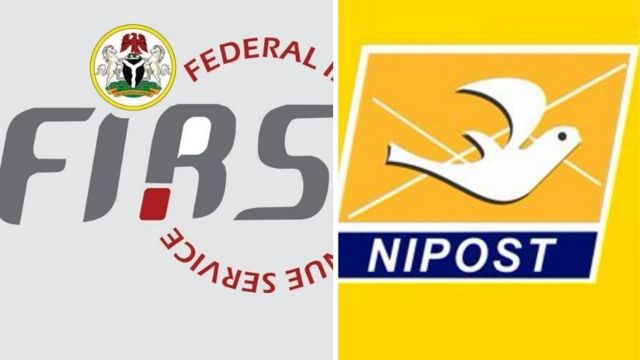For some time now two federal government agencies responsible for generating revenues: the Federal Inland Revenue Service, (FIRS) and the Nigeria Postal Services, (NIPOST), have been locked in a feud on who between them should collect revenues from stamp duty.
The FIRS justifies its claim by citing the provisions of the Finance Act, 2020, which designates it as the agency to handle this task.
President Muhammadu Buhari had signed the act into law in January this year in which new tax regimes and revenue collection strategies were introduced to boost the government’s revenues.
NIPOST however contends that as the agency that has the right to ownership of stamp duty, it is its exclusive preserve to collect the revenues therefrom and not FIRS or any other agency of government.
NIPOST points out that the provisions in the Finance Act,which granted the responsibility to FIRS contained some ‘’contradictions’’ which should be addressed and resolved in its favour.
In the workings of government, it often happens that agencies sometimes engage in rivalries and so-called turf wars in the course of the discharge of their statutory responsibilities.
In the security and law enforcement arms for instance, we often have reports of agencies not sharing critical information, or in some extreme cases, even not working together in field operations.
The continuing loggerhead between the FIRS and NIPOST is one example of such dysfunctional operational approach to statutory responsibilities by government agencies, which ought to be nipped in the bud before it morphs into unmanageable proportions.
We are all aware of the dire financial straits that the government is in. Even before the advent of the COVID-19 pandemic, government revenues were plummeting as a result of falling oil prices in the global oil industry, which constitutes the overwhelming source of our revenue.
It is therefore noteworthy and commendable that the government is thinking of tapping into potential areas of revenue generation to supplement the budget.
One of such areas is the stamp duty, which by all projections can raise trillions for the government.
The issue of how this revenue and which agency should collect it is what has pitted the two agencies in this on-going unhelpful feud.
The stamp duty is a tax payable to state or federal government on transactions, which include Power of Attorney, Deed of Assignment, Sales Agreement, Leasing, Certificate and Rights of Occupancy, Joint Venture Agreements, Memorandum of Understanding, Contract Agreements, etc.
The payment of stamp duty has been a subsisting law right from 1939 when it was first passed and been subject to several amendments.
It is from this law that the government revenue generating agencies like the Central Bank of Nigeria (CBN), the Nigeria Customs Service, (NCS), FIRS and NIPOST among others, derive the authority to raise revenue on behalf of the government.
In the current circumstances, the disagreement between FIRS and NIPOST may look on the surface as a sign of a healthy rivalry in the attempt by both agencies to meet the revenue target given to them by government.
On the flip side however, the dimension the feud has taken, if not checked might result in the government not reaching its revenue projection, which poses a far greater danger to the nation.
This is because the two agencies might just take their eyes off the overall important goal of generating the much-needed revenue for the government and concentrate their energies instead on sabotaging each other.
Already, as an indication of this, we have seen a situation where spokespersons of the two agencies are engaging in rather intemperate public comments, which do not augur well for the needed synergy between them.
Taken together, it is our view that the government, which set up these agencies, and to whom they report, should most expeditiously wade into the issue with a view to resolving it.
In doing that, the government should be guided by the extant laws, which set up the agencies and their functions.
Where there are overlaps in their functions, they should be streamlined.
And where government sees the need in the overriding public interest regardless of the functions of these agencies, as in this case, to take extraordinary steps in attaining its goals in this sector, then it must step in to ensure that they work together to deliver.

 Join Daily Trust WhatsApp Community For Quick Access To News and Happenings Around You.
Join Daily Trust WhatsApp Community For Quick Access To News and Happenings Around You.


